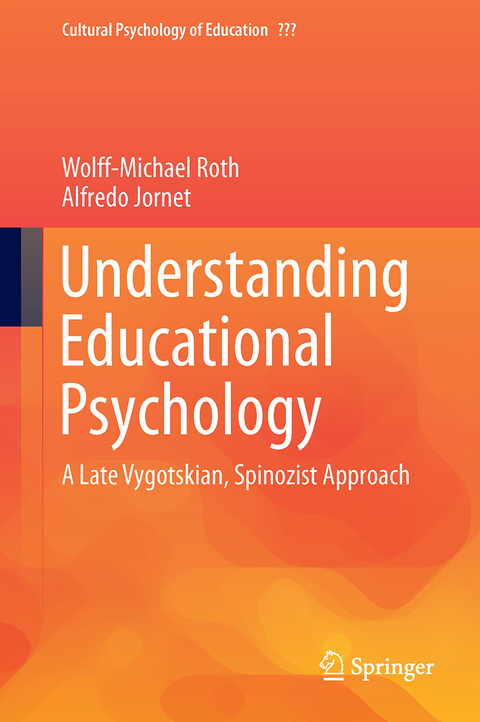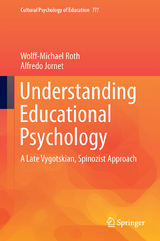Understanding Educational Psychology
Springer International Publishing (Verlag)
978-3-319-39867-9 (ISBN)
This book takes up the agenda of the late (but unknown) L. S. Vygotsky, who had turned to the philosopher Spinoza to develop a holistic approach to psychology, an approach that no longer dichotomized the body and mind, intellect and affect, or the individual and the social. In this approach, there is only one substance, which manifests itself in different ways in the thinking body, including as biology and culture. The manifestation as culture is premised on the existence of the social.
In much of current educational psychology, there are unresolved contradictions that have their origin in the opposition between body and mind, individual and collective, and structure and process-including the different nature of intellect and affect or the difference between knowledge and its application. Many of the same contradictions are repeated in constructivist approaches, which do not overcome dichotomies but rather acerbate them by individualizing and intellectualizing our knowledgeable participation in recognizably exhibiting and producing the everyday cultural world. Interestingly enough, L. S. Vygotsky, who is often used as a referent for making arguments about inter- and intrasubjective "mental" "constructions," developed, towards the end of his life, a Spinozist approach according to which there is only one substance. This one substance manifests itself in two radically different ways: body (material, biology) and mind (society, culture). But there are not two substances that are combined into a unit; there is only one substance. Once such an approach is adopted, the classical question of cognitive scientists about how symbols are grounded in the world comes to be recognized as an artefact of the theory. Drawing on empirical materials from different learning settings-including parent-child, school, and workplace settings-this book explores the opportunities and implications that this non-dualist approach has for educational research and practice.Foreword.- 1. Vygotsky, Spinoza, and Cultural Psychology of Education.- PART I: FOUNDATIONS.- Introduction.- Biology | Culture.- Communicating | Thinking.- Intrasubjectivity | Intersubjectivity.- Primacy of the Social and Sociogenetic Method.- Learning | Development.- PART II: CASE STUDIES.- Introduction.- The Social Nature of Reading.- Intention-A Product of Joint Social Work.- Culturing Conceptions.- Natural History of the Sign.- Genesis of the Zone of Proximal Development.- PART III: IMPLICATIONS.- Introduction.- The Thinking Body.- "The Way to Freedom" in/for Education.- Appendix.- Index.
| Erscheinungsdatum | 23.08.2016 |
|---|---|
| Reihe/Serie | Cultural Psychology of Education |
| Zusatzinfo | XIV, 328 p. 83 illus. |
| Verlagsort | Cham |
| Sprache | englisch |
| Maße | 155 x 235 mm |
| Themenwelt | Geisteswissenschaften ► Psychologie ► Pädagogische Psychologie |
| Medizin / Pharmazie ► Medizinische Fachgebiete ► Psychiatrie / Psychotherapie | |
| Schlagworte | Biological origins of human behavior • Conceptual Change • Cultural Educational Psychology • cultural historical theory • Cultural origins of human behavior • Education • Educational Psychology • Ethnomethodology • Intention as Social Relation • Learning vs Development • Personality and Social Psychology • Primacy of the Social and Sociogenetic Method • Sociogenetic method • Sociology of Culture • Sociology of Education • Spinozist theory • Unity of phonetics and semantics • Vygotsky • zone of proximal development |
| ISBN-10 | 3-319-39867-9 / 3319398679 |
| ISBN-13 | 978-3-319-39867-9 / 9783319398679 |
| Zustand | Neuware |
| Informationen gemäß Produktsicherheitsverordnung (GPSR) | |
| Haben Sie eine Frage zum Produkt? |
aus dem Bereich




